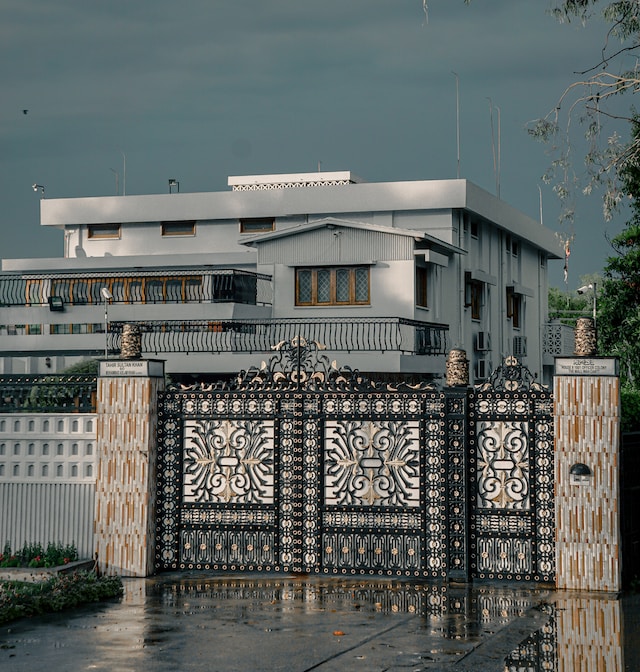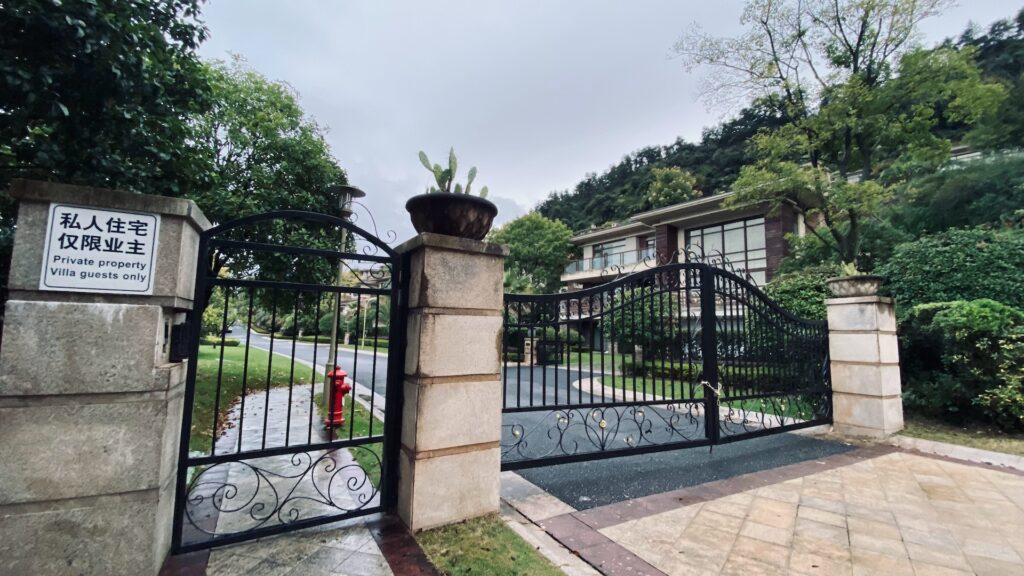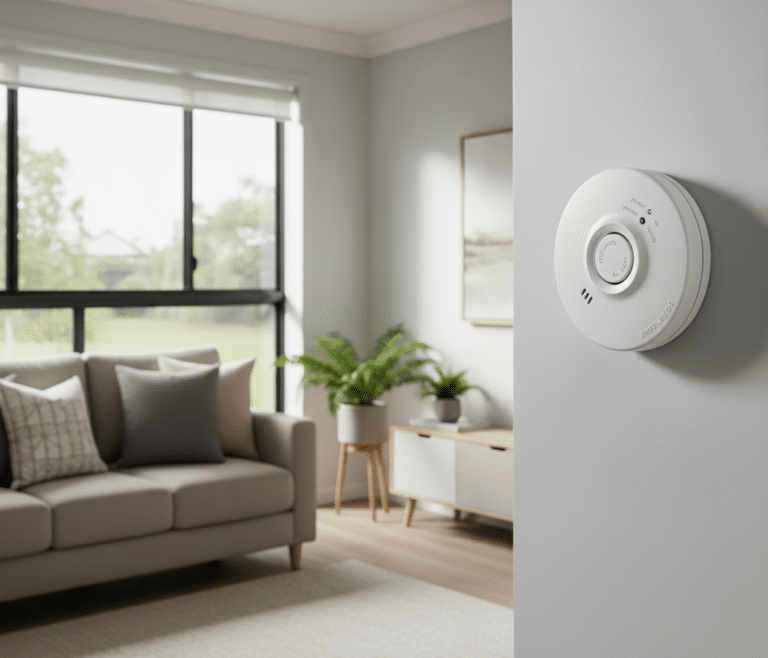Security gates have become a common sight in both residential neighbourhoods and in business settings.
While they are primarily designed to deter unauthorised access and enhance physical security, their impact goes beyond the tangible aspects of safety.
In this article, we will delve into the psychological effects of security gates, shedding light on how they influence our perceptions, behaviour, and overall well-being in both home and business environments.
The Reassurance of Physical Barriers
Security gates serve as visible physical barriers, marking the boundaries of a property. The mere presence of a gate can instil a sense of reassurance, of safety and of peace.
For homeowners, it conveys a feeling of protection, shielding their families and possessions from potential threats. In a business context, it communicates to employees, clients, and visitors that security, and privacy is a priority.
Sense of Control
One of the main psychological effects of security gates is the sense of control they provide. The ability to open and close the gate, granting or denying access, can make individuals feel empowered. This control fosters a sense of ownership and responsibility for one’s safety, which can lead to increased vigilance.
A security gate at the entrance to a property implies a level of control that is particularly pronounced in a residential setting. Homeowners can decide who enters and who doesn’t, and this simple act of allowing or denying access offers a feeling of authority. This sense of control extends to the protection of loved ones and property, fostering a belief that one is capable of safeguarding their immediate environment.
For businesses, security gates often serve as the first line of defence against unauthorised access. Employees and security personnel authorised to manage gate access may experience a heightened sense of responsibility and control. The knowledge that they hold the key to the gate can make them more alert and proactive in monitoring who enters the premises.
Privacy and Personal Space
Security gates offer a clear boundary between public and private spaces.
For homeowners, this separation provides a sanctuary where they can relax and enjoy a sense of solitude.
In a business setting, it delineates a safe environment for employees to focus on their tasks without external disturbances.
Reducing Anxiety
Knowing that a security gate restricts unauthorised entry can help reduce anxiety and increase a sense of security. This is particularly valuable for individuals living in high-crime areas or businesses situated in less secure neighbourhoods.
In a residential context, the presence of a security gate can significantly reduce anxiety, particularly in areas with a history of crime or neighbourhoods with a high population density.
The visual and physical barrier creates a clear boundary between the outside world and the private sanctuary of one’s home. This can lead to a reduced perception of threat and a greater sense of comfort, as residents know they have an added layer of protection.
In a business environment, where employees may be concerned about safety during their commute to work or within the workplace itself, security gates provide peace of mind.
The presence of a gate implies that the organisation prioritises security, leading to reduced anxiety and increased focus on job-related tasks, or for visitors, it might show professionalism and increase trust in the business.
Deterrence and Perceived Risk
Security gates are not only physical barriers; they also serve as psychological deterrents. The visible presence of a gate suggests to potential intruders that a property is protected and monitored. This perceived risk can discourage criminal activities.
Behaviour Modification of Security Gates
Knowing that they are being watched or that there is a significant barrier to entry, people tend to exhibit more law-abiding behaviour. This is true for both homeowners and employees, as they are less likely to engage in risky or unlawful activities.
Security gates, particularly when paired with surveillance cameras or other security measures, often deter potential criminals.
The mere presence of a gate implies that the property is not an easy target, and the risk of getting caught or facing obstacles to entry is significantly increased. This discourages individuals with malicious intent and can result in a lower crime rate in areas with a strong security gate presence.
In addition to deterring potential intruders, security gates can also modify the behaviour of those who live or work within the protected area. Residents or employees are more likely to adhere to rules and regulations when they know they are being monitored, indirectly or directly, through security measures.

Trust and Professionalism
In a business context, the presence of security gates communicates professionalism and reliability.
Clients and partners may be more inclined to trust and collaborate with a business that invests in its security measures, as well as making sure it is always clean and to a professional standard. It also assures employees that their well-being is a priority for the organisation.
Security Gates Boosting Confidence
The feeling of security can have a positive impact on employees. When they know that their workplace is secure, they tend to be more confident and productive. This, in turn, can lead to higher job satisfaction and employee retention.
A business that invests in security gates and other security measures. Communicates to its employees and clients that it takes their safety and the protection of their assets seriously. This can boost employee morale and productivity, as they feel valued and secure in their workplace.
It can also increase the confidence of clients and partners who trust that their interactions with the business will be conducted in a safe and professional environment.
Psychological Impact on Visitors
Security gates influence the impressions of visitors, whether they are guests at a residence or clients at a business. They signal that the property owner values safety and is committed to maintaining a secure environment.
Security Gates Giving Good First Impressions
Visitors often form initial judgments based on their surroundings. A well-maintained security gate can create a positive first impression, enhancing the perceived value of the property.
In a residential context, the presence of a security gate can leave a lasting first impression on visitors. It suggests that the homeowner takes their security seriously and values the privacy and safety of their home. This can enhance the overall perception of the property and make guests feel more at ease and secure during their visit.
In a business context, clients, partners, and potential investors who arrive at a facility with a well-designed and professionally maintained security gate are likely to form a favourable impression. It communicates that the organisation prioritises security and is committed to providing a safe and reliable environment for its guests.
Summary – Security Gates’ Psychological Impact
The psychological effects of security gates extend far beyond their physical function. They offer a sense of reassurance, control, and privacy to residents and businesses.
These barriers also deter potential threats, modify behaviour, and convey trust and professionalism. Ultimately, the presence of a security gate contributes to the overall well-being and peace of mind of those who live and work within its confines.
In an ever-changing world, security gates stand as the guardians of both property and peace of mind. They provide a tangible and psychological sense of security. That enhances the quality of life and fosters confidence in our homes and workplaces.




